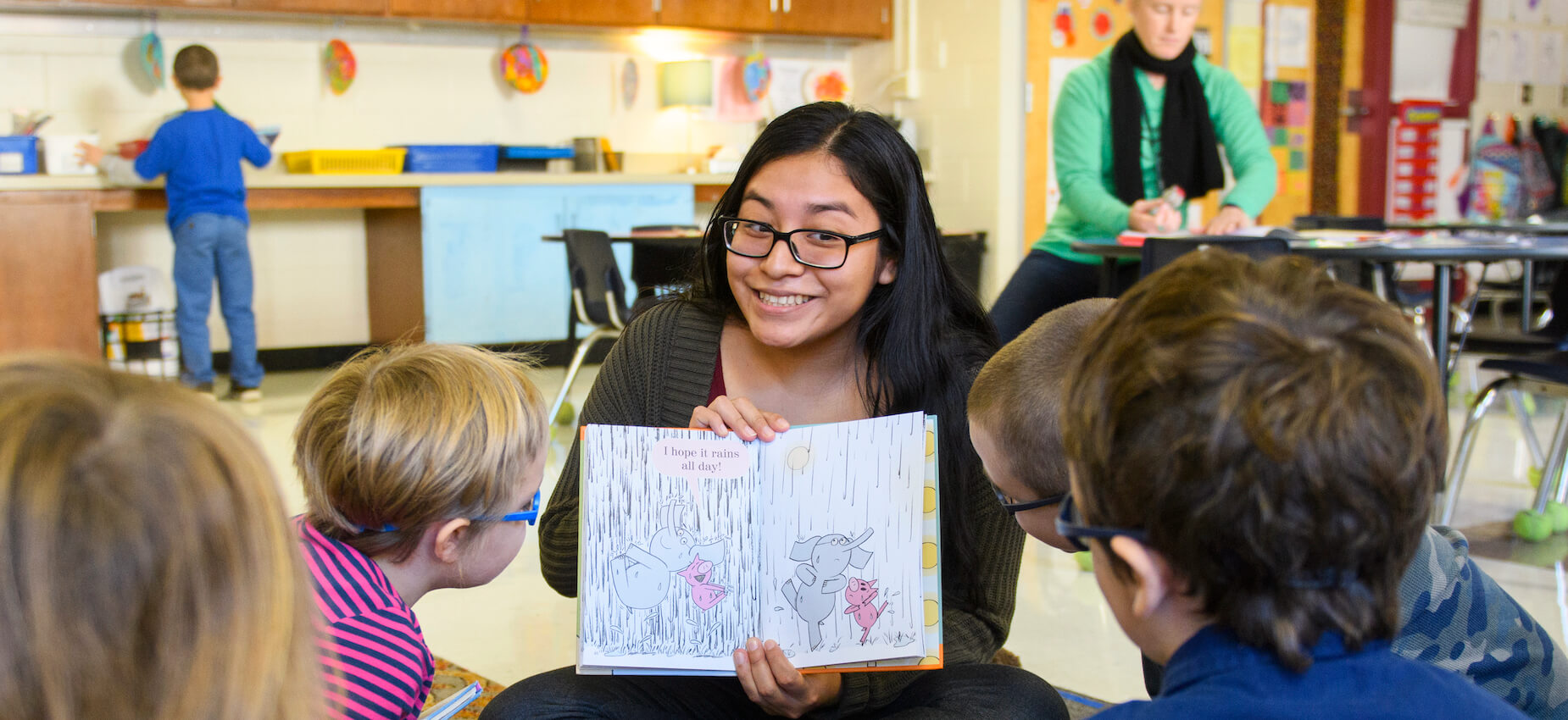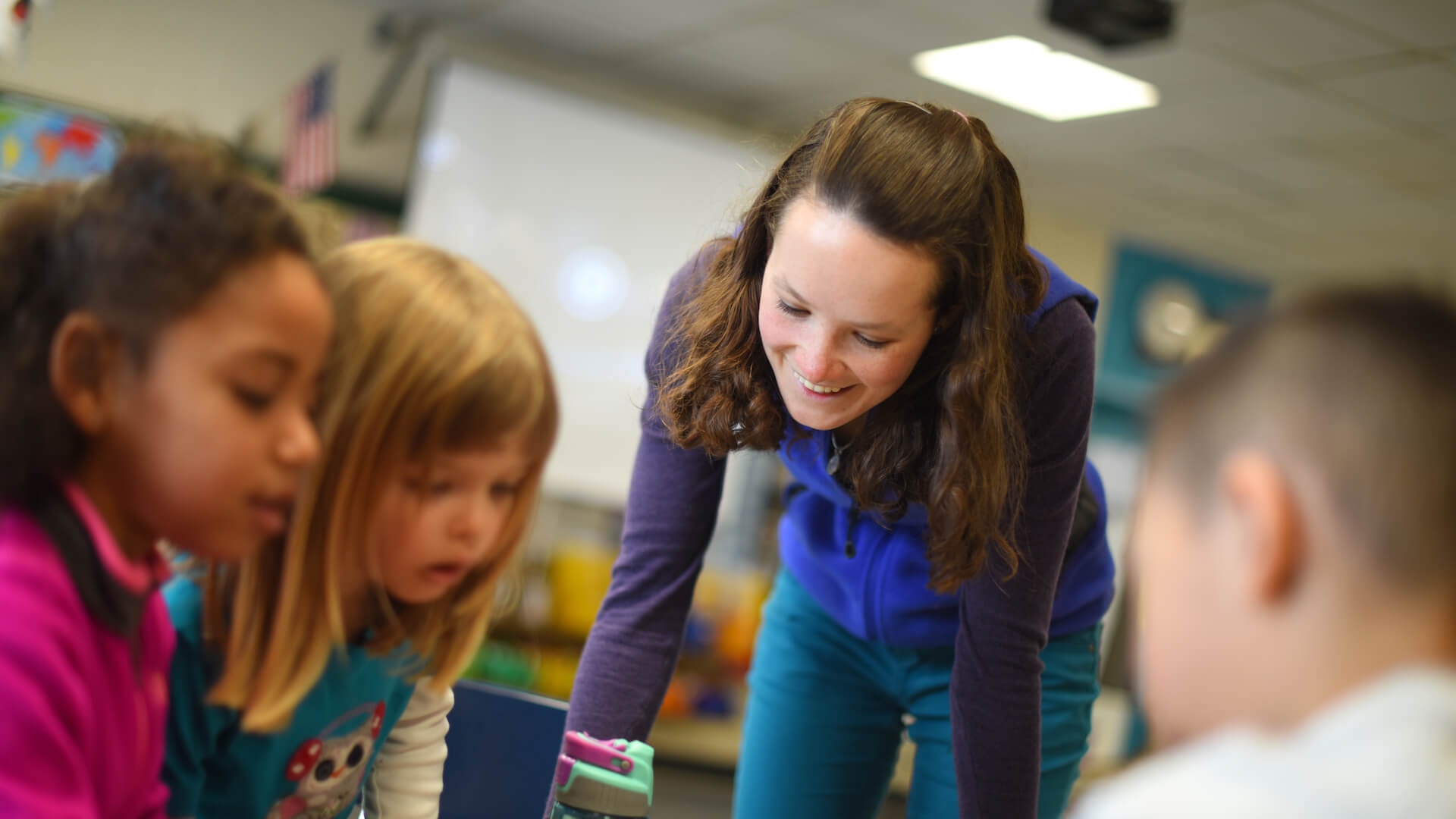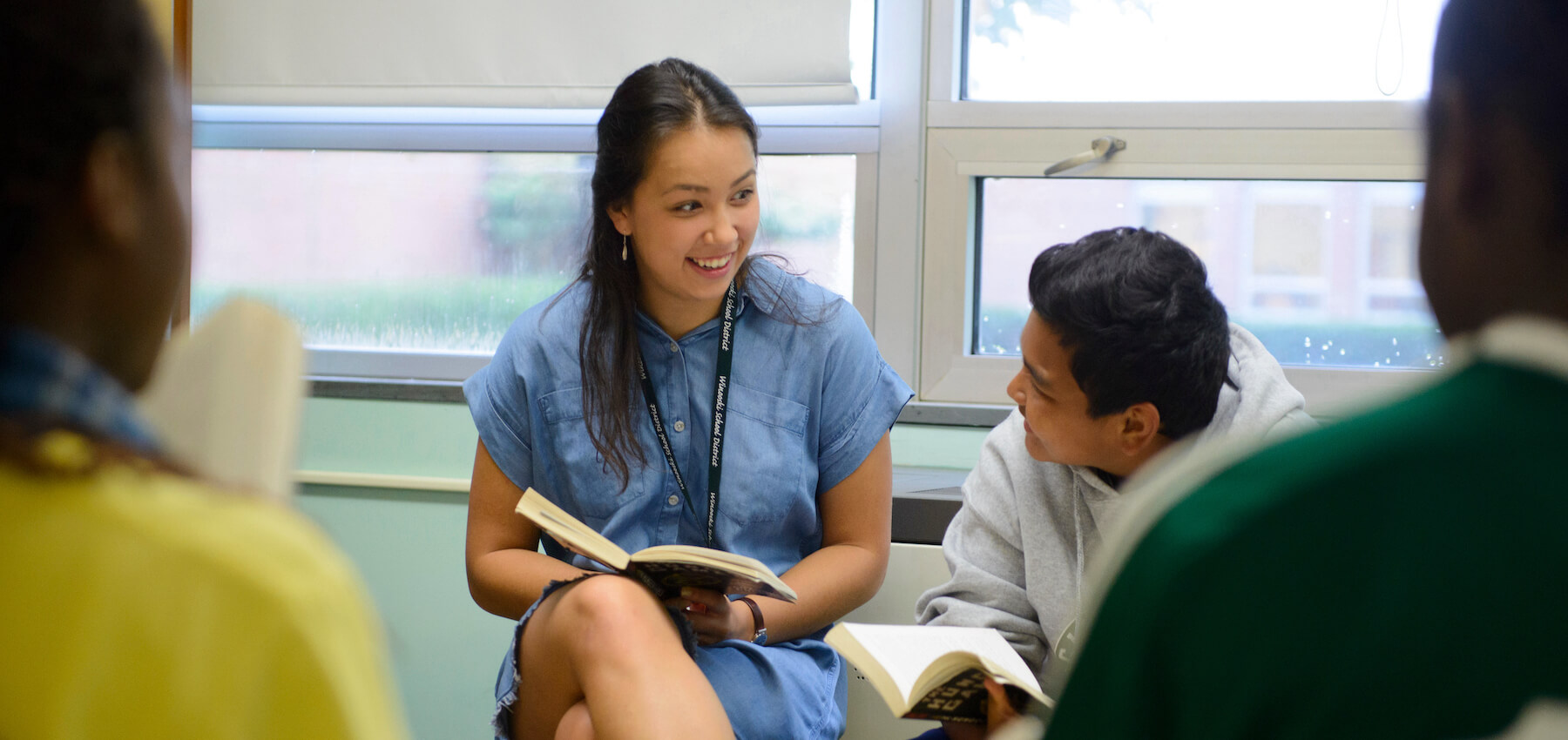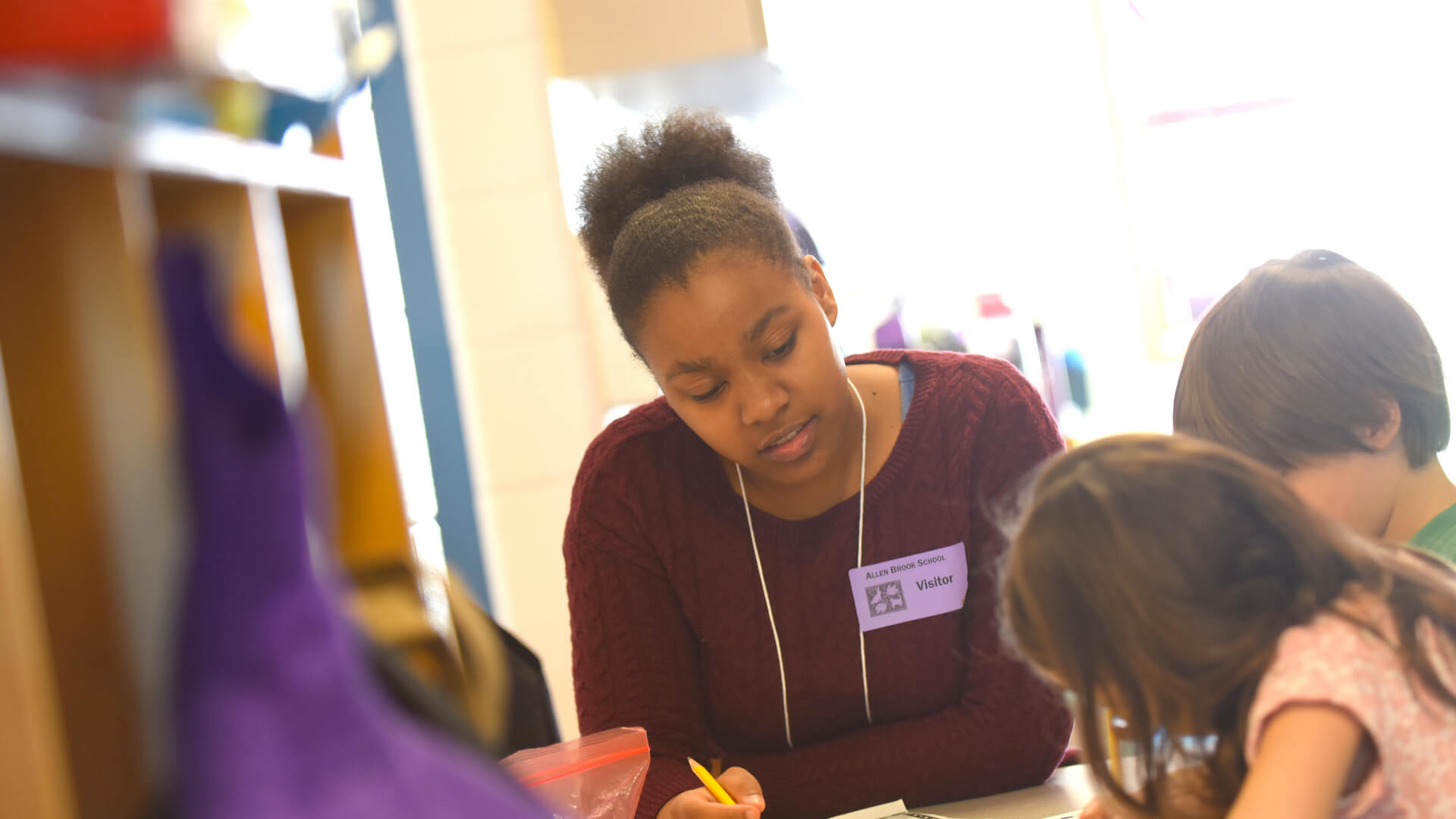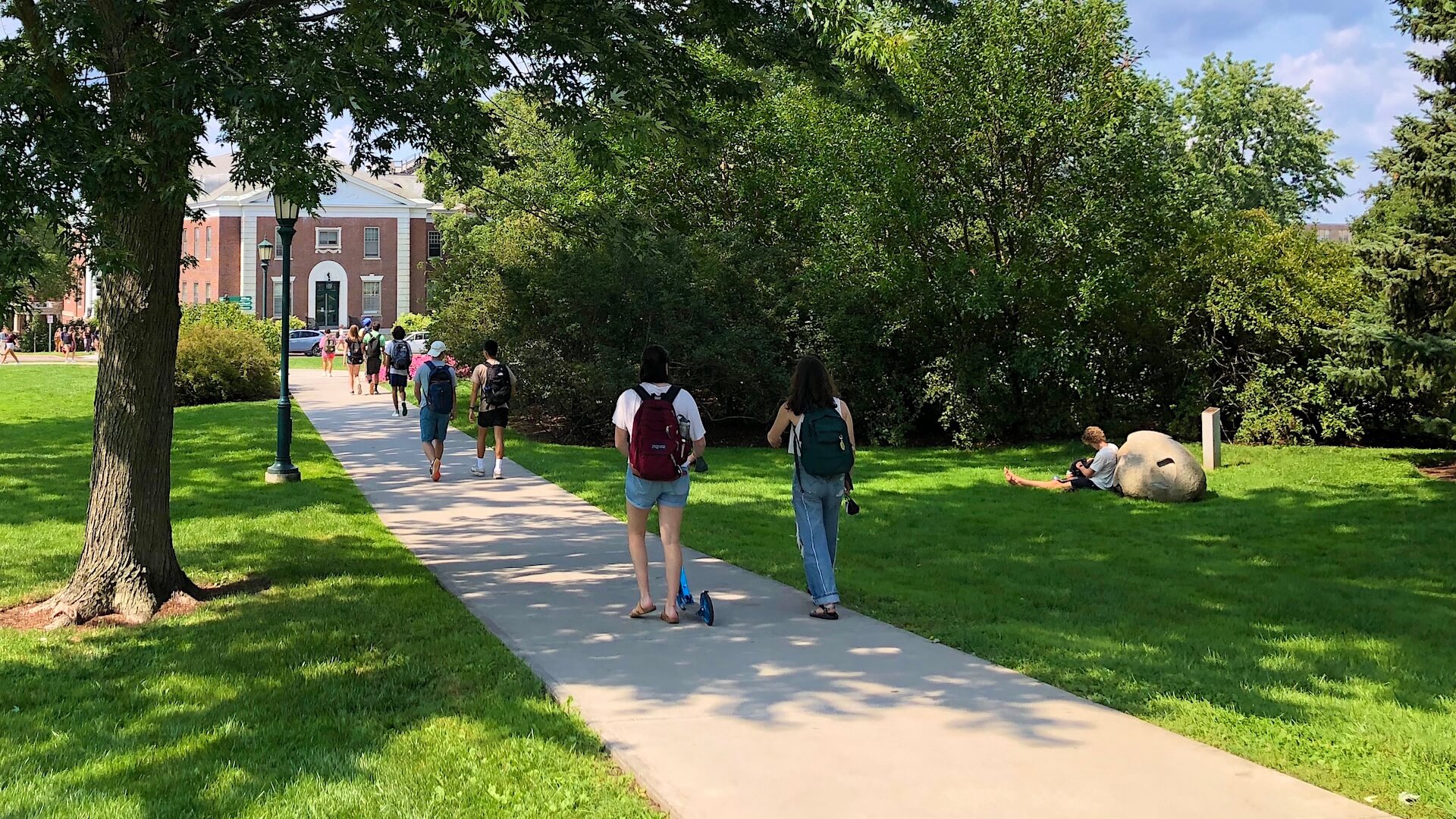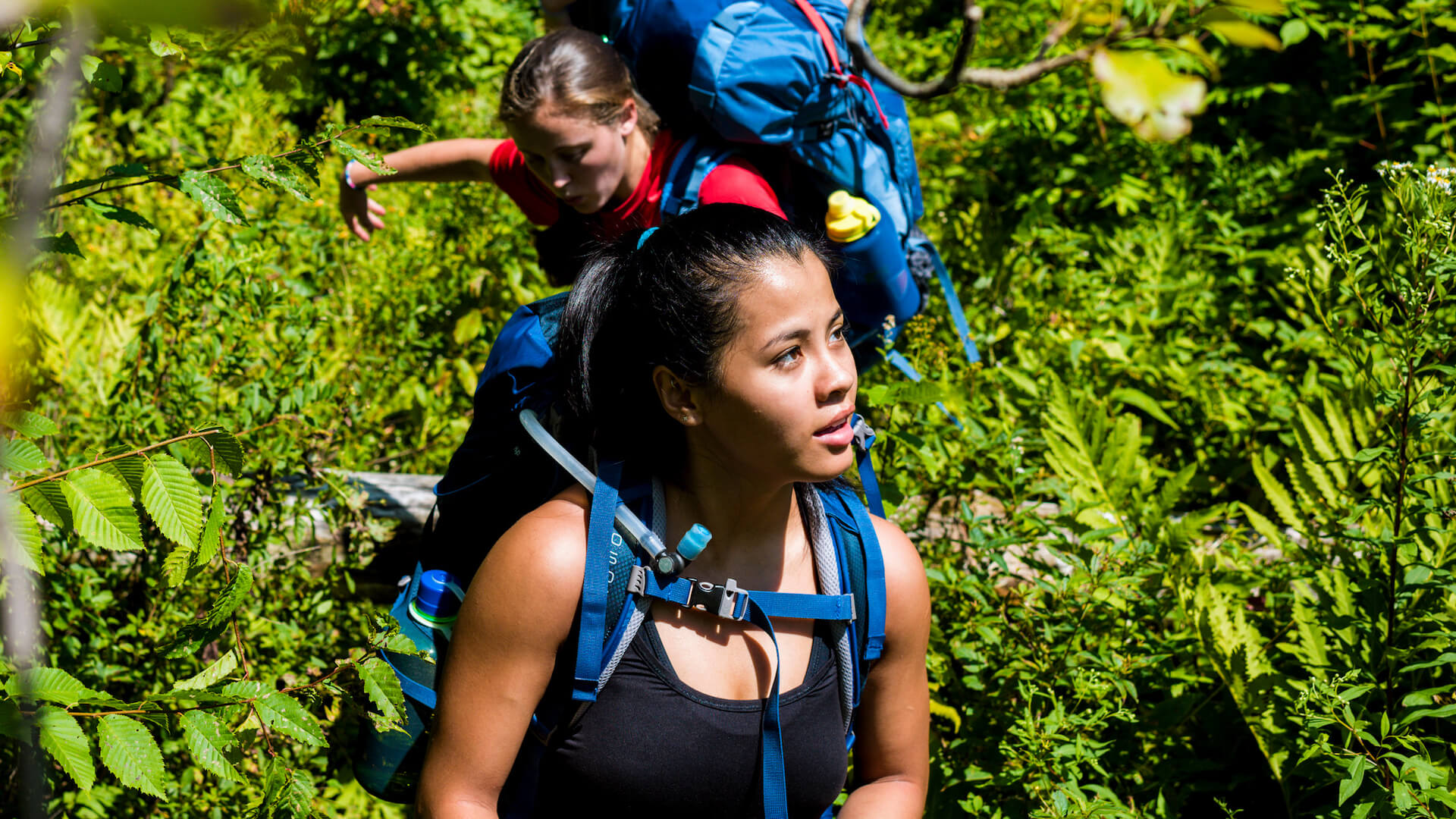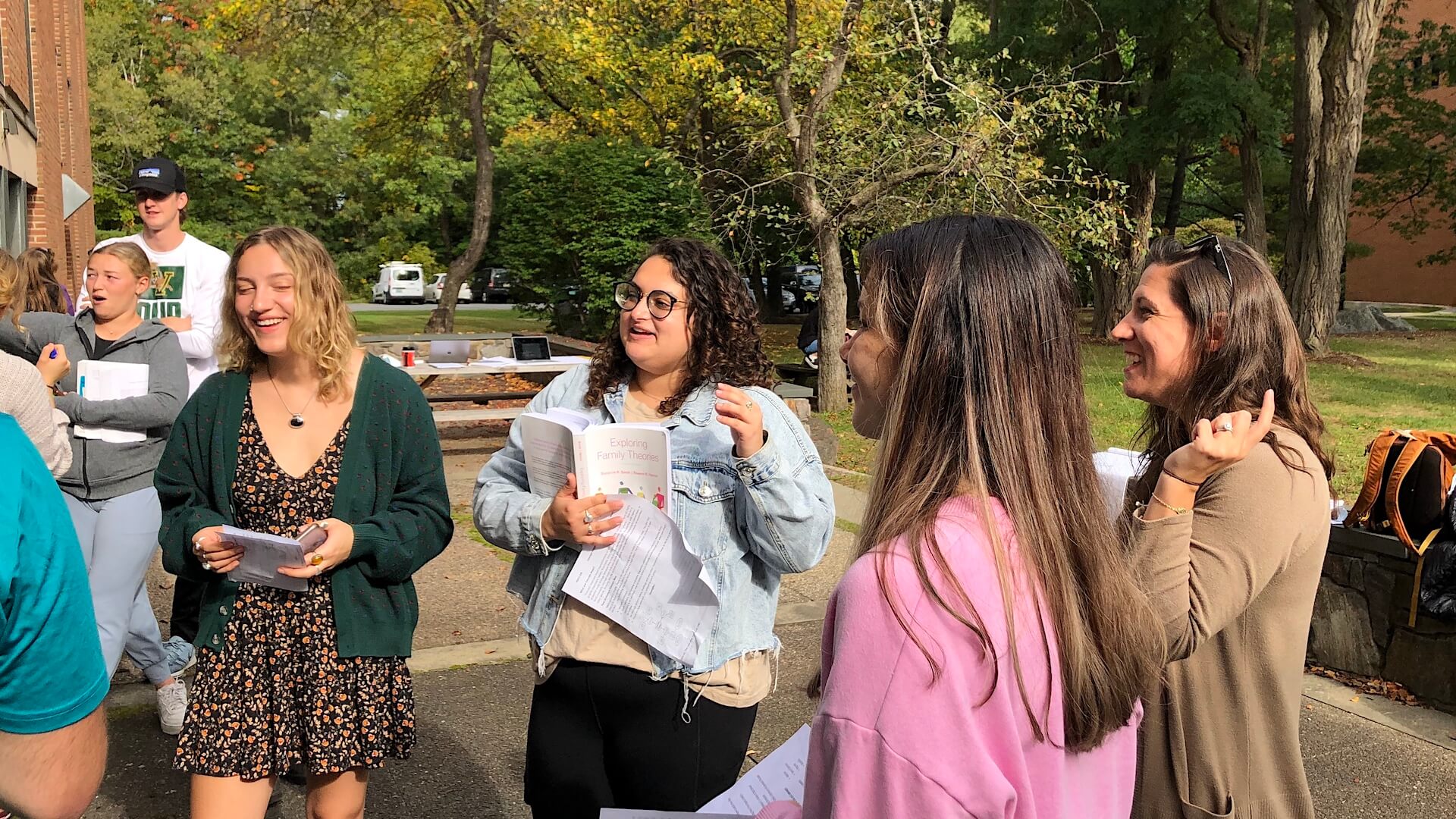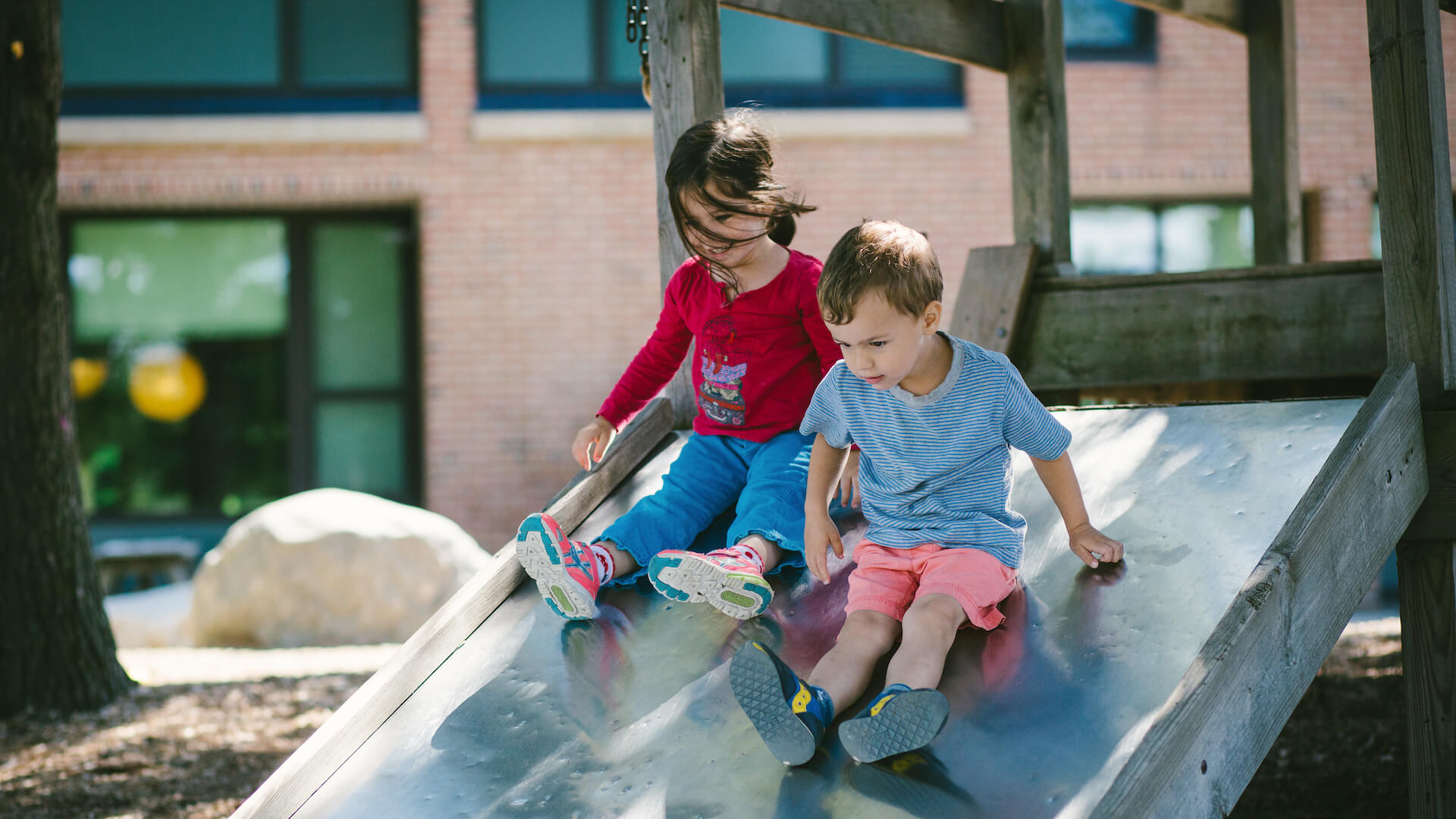Curriculum
The 18-credit minor includes 9 credits at the 2000-level and higher. Coursework includes child development, early childhood education, interdisciplinary electives to explore various social science and interdisciplinary perspectives, and a capstone experience.
You can double dip one interdisciplinary elective with major requirements (if allowed by your major).
Begin the curated sequence of coursework with EDEC 1010: Movie Night: Critical Childhood Studies introducing themes and approaches to social science inquiry.
Next, choose a developmental course with scientific grounding in how children grow and change, develop brain architecture, construct knowledge about the world, and create relationships as the foundation for future learning, behavior, and health.
Select from a variety of interdisciplinary electives with a civic learning experience and opportunities to explore how children learn and construct knowledge about the world. Electives include courses from fields such as ANTH, CSD, ECSP, ECLD, EDHE, EDSP, GEOG, GSWS, HDFS, PSYS, SOC, and STAT.
Apply learning in advocacy of children’s rights, education, or welfare through a variable-credit capstone experience (EDEC 3070: Advocacy in Action). Conduct inquiry and action research in partnership with schools, childcare programs or community organizations providing service or advocacy to improve public policies.
Course Sequence:
Introductory Course (required):
- EDEC 1070 D2/S1: Movie Night-Critical Childhood Studies (3 credits)
Developmental Knowledge (choose one):
- EDEC 1630: Child Development (3 credits)
- HDF 1050: Human Development (3 credits)
- PSYS 2400: Developmental Psych: Childhood (3 credits)
Early Childhood Electives (choose one or two)
- EDEC 1010 D2/GC2: Intro to Early Care and Education (with Civic Learning 4 credits)
- EDEC 2130 AH1: Creative Arts and Movement
- EDEC 2510 SU: Science of Everyday Life
- EDEC 3810: Inquiry-Based Pedagogy
Capstone (required):
- EDEC 3070: SL/GC2/WIL2: Advocacy in Action (variable 3-6 credits)
